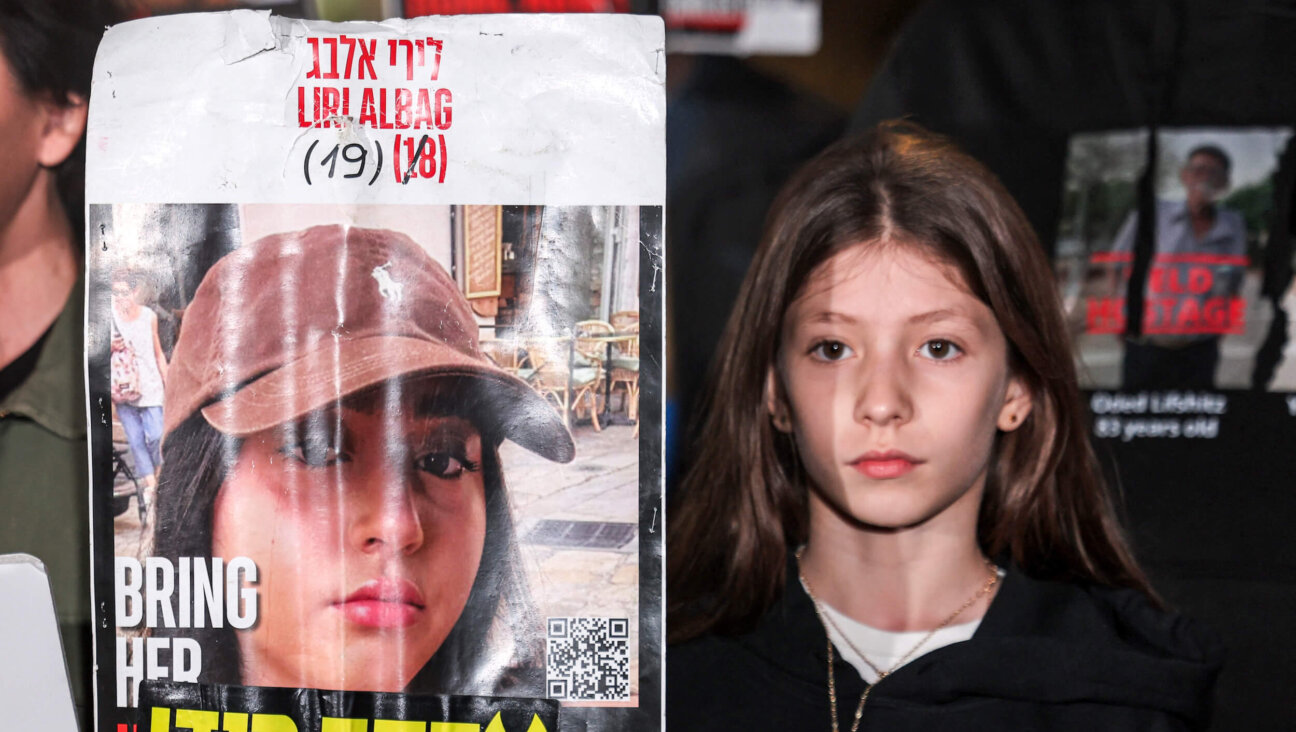In Turkey, Orthodox drama ‘Shtisel’ is being adapted for a Muslim audience
Despite a lack of available plot details, Turkish media are noting similarities between ‘Ömer’ and ‘Shtisel’

Selahattin Paşali plays the protagonist in the upcoming series titled “Ömer.” (Screenshot from Dizali/Twitter)
ISTANBUL (JTA) — “Shtisel,” a TV series about haredi Orthodox Jews that became an international phenomenon after Netflix picked it up in 2018, is getting a Muslim makeover for Turkish audiences, according to Turkish media.
A new show titled “Ömer” has begun production and will premiere sometime in 2023 on Turkey’s STAR TV, Turkish media reported.
Not much is known about the show’s plot. A trailer depicts the protagonist Ömer, played by Selahattin Paşali, standing at the precipice of a mosque and seemingly stuck between the calls of an imam on one side and a woman — with uncovered hair — on the other, as the Islamic call to prayer, also sung by Paşali, sounds in the background.
Star TV has unveiled a first look at its upcoming drama, "Ömer."
— Dizilah (@dizilah) December 23, 2022
The OGM Pictures-produced series is reportedly based on the award-winning series "Shtisel," which followed a religious family as they reckon with love, loss and the doldrums of daily life.
pic.twitter.com/6dQPVJa2ov
In Islam, women are required to cover their hair in public, so the images suggest that the main theme of the show could involve Ömer choosing between religious tradition and secularism. That was not one of the central tensions in “Shtisel,” which debuted on Israeli TV in 2014 and was widely praised for depicting the everyday lives of characters based in Jerusalem’s haredi community.
Nonetheless, Paşali’s character is being compared to Michael Aloni’s character, Akiva in “Shtisel,” and an imam character is being compared to the patriarch of the Shtisel family, Shulem.
The series’ female lead, Gökçe Bahadir, may be recognized by some Jewish and Israeli audiences: Last year, she starred in the hit Turkish Netflix series “The Club” (“Kulüp”), which follows a Sephardic-Jewish family through the political turmoil of 1940s and 1950s Istanbul.
Turkish shows, often referred to by the Turkish term, “dizis,” have long been as popular in Israel as they are elsewhere in the Middle East. One show, “The Bride of Istanbul” (“Istanbullu Gelin”) — which was directed by the same director as “the Club,” Zeynep Gunay Tan, and produced by the same production company as “Ömer” — grew a passionate Israeli fanbase in 2018, according to Haaretz.
Over 600,000 Israelis visited Turkey this past summer, a record high, according to the Jerusalem Post.
Last year, it was reported that an American version of “Shtisel,” to be directed by acclaimed filmmaker Kenneth Lonergan, was in the works.
This article originally appeared on JTA.org.
A message from our Publisher & CEO Rachel Fishman Feddersen

I hope you appreciated this article. Before you go, I’d like to ask you to please support the Forward’s award-winning, nonprofit journalism so that we can be prepared for whatever news 2025 brings.
At a time when other newsrooms are closing or cutting back, the Forward has removed its paywall and invested additional resources to report on the ground from Israel and around the U.S. on the impact of the war, rising antisemitism and polarized discourse.
Readers like you make it all possible. Support our work by becoming a Forward Member and connect with our journalism and your community.
— Rachel Fishman Feddersen, Publisher and CEO




















